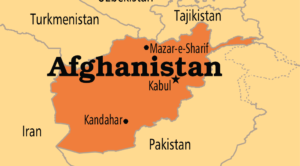
While this mutation is a tribute to the importance of the protest movement against the war in the United States, we cannot ignore its opportunistic and hypocritical nature.
Gilbert Achcar grew up in Lebanon and has lived and taught in Paris, Berlin, and London. He is currently professor of Development Studies and International Relations at SOAS, University of London. His many books include The Clash of Barbarisms (2002, 2006); Perilous Power: The Middle East and US Foreign Policy, co-authored with Noam Chomsky (2007); The Arabs and the Holocaust: The Arab-Israeli War of Narratives (2010); Marxism, Orientalism, Cosmopolitanism (2013); The People Want: A Radical Exploration of the Arab Uprising (2013); and Morbid Symptoms: Relapse in the Arab Uprising (2016).

While this mutation is a tribute to the importance of the protest movement against the war in the United States, we cannot ignore its opportunistic and hypocritical nature.

There is little doubt that Israel will respond to Iran’s launch of three hundred and twenty drones, cruise missiles, and ballistic missiles on its territory with a major attack on Iran, and this for several reasons.

A response to Jean Vogel’s critique of Achcar’s “For a democratic antiwar position on the invasion of Ukraine.”

Some basic principles for avoiding the twin dangers of favoring the aggressor and extreme nationalism.

Gilbert Achcar responds to six questions about his “Memorandum on the radical anti-imperialist position regarding the war in Ukraine.”

The Afghan government’s fate is but the most recent in a long list of cases of puppet entities created by a foreign occupation that collapse when that occupation ends.

Israel’s official discourse vehemently denies its “deeply ingrained institutionalized” anti-Arab racism and the settler-colonial nature of its state, although it is as blatant as could be and was even acknowledged by Zionism’s prominent historical figures.